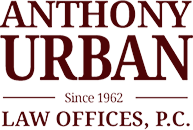Insurance coverage can be a complex web, and understanding who pays for what in various scenarios can be a daunting task. At the Law Offices of Anthony Urban, we're here to help you unravel the intricacies of insurance coverage and provide clarity on some common questions you may encounter. Let's dive right in!
1. Who Pays Medical Bills?
If you have your own auto insurance, it typically covers your medical bills. In the case of an accident where you don't have your own auto insurance but were either in an insured car that policy should cover, or alternatively if you are hit by an insured car as a pedestrian or on a bicycle, the at-fault driver's insurance should cover your medical bills.
2. What if You Don't Have Your Own Auto Insurance?
If you don't have your own auto insurance and lack health coverage, you may still be entitled to assistance. The Pennsylvania Financial Responsibility Assigned Claims Plan (PFRACP) can provide state-funded coverage for your medical bills in such situations.
3. At-Fault Driver's Insurance Goes Insolvent?
When the at-fault driver's insurance company becomes insolvent and enters conservatorship for liquidation, the Pennsylvania Property and Casualty Insurance Guaranty Association (PPCIGA) steps in to pay your claims. This ensures that you receive the compensation you deserve even when the at-fault party's insurer faces financial difficulties.
4. Multiple Coverages: Who Pays in What Order?
In scenarios with multiple coverages available, the order in which you receive compensation may vary. Typically, the at-fault party's policy takes precedence, followed by any underinsured motorist coverage in the car you occupied as a passenger. Your own policy's underinsured motorist coverage comes into play if there's still a gap to fill.
5. Underinsured Motorist Coverage in Household Policies
If you live with parents, grandparents, or children who have their own respective car insurance policies, underinsured motorist coverage can be coordinated on a pro-rata share basis. This means that each policy may contribute a portion of the coverage to address the shortfall.
6. Multi-Vehicle Crashes with Multiple At-Fault Parties
In the case of a multi-vehicle car crash where several operators are at fault, the responsibility for payment may be distributed among the at-fault parties and their respective insurance carriers. Determining liability can be complex, and an experienced attorney can help ensure you receive appropriate compensation.
7. Inadequate Property Damage Coverage
If the other driver has inadequate third-party property damage coverage, you can turn to your own insurance for coverage, typically under your collision property damage coverage or uninsured motorist benefits coverage. However, underinsured motorist coverage might not apply to property damage claims.
Navigating the intricacies of insurance coverage can be a challenging task, but it's crucial to ensure you receive the compensation you need to recover from an accident. At the Law Offices of Anthony Urban, we are well-versed in Pennsylvania's insurance laws and can provide the guidance and support you need to protect your rights. If you have any more questions or need assistance with an insurance-related matter, don't hesitate to reach out to us. We're here to help you every step of the way.

